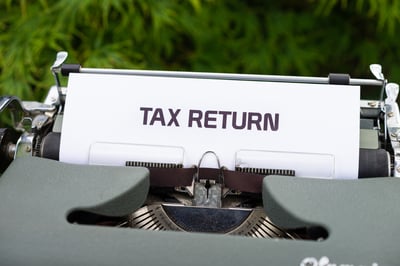 It's never too early to start prepping for tax season. For real estate investors, filing taxes can be a complicated and frustrating process, so the sooner you get started, the better off you’ll be. Get your financial house in order and take advantage of every tax benefit, break, and exemption you can!
It's never too early to start prepping for tax season. For real estate investors, filing taxes can be a complicated and frustrating process, so the sooner you get started, the better off you’ll be. Get your financial house in order and take advantage of every tax benefit, break, and exemption you can!
(Note: This is NOT financial advice. We always suggest consulting a CPA or other tax professional before filing.)
6 Key Tax Prep Tips for Real Estate Investors
1) Avoid Relying on Software
Although tax software can be helpful, it shouldn’t be solely relied upon. These tools are beneficial only if you already know what you’re doing. They won’t necessarily stop you from making costly errors. Rather, they only help you organize and input the information you have. It’s up to you to wield that information legally and responsibly.
Rather than looking for cheap tax software to do the job for you, consult a flesh-and-blood CPA. They’ll better know what you can and cannot do and will help you identify opportunities to reduce your liability that software won’t.
2) Recognize Key Deductions
Real estate investors can benefit from a whole host of tax deductions. Remember, this is a business, and you can deduct things as any business would. For real estate investors, these deductions typically include:
- Mortgage Interest
- Property Taxes
- Insurance Costs
- Property Management Fees & Other Professional Services
- Software and support system costs
- Legal fees
- Closing costs
- Home office
- Travel and accommodations to and from rental properties
- Advertising costs
- Repair (NOT improvement!) costs
- Depreciation
If you’re unsure whether you can deduct an expense, ask your CPA.
3) Consider Capital Gains
Long-term buy-and-hold investors are at a massive advantage here. Moving forward, recognize that the longer you hold an investment property, the better position you’ll be in come tax time. Selling an investment property that you have held for less than a year (as most flippers would) results in some hefty capital gains taxes – up to 39% of sales income.
With long-term capital gains, the tax rates are more forgiving, ranging from nothing at all to 20% of sales profits. Think about this long before you execute an exit strategy. You may regret not holding on for a little longer.
4) Track Expenses
This advice might come a little late as we’re nearing the end of the year but track all of your expenses as they come. This is where software can come in handy. Platforms like Stessa can help investors keep up with expenses without holding on to shoeboxes full of physical receipts.
As you pay bills and business expenses, record them in one place. This will prevent you from having to hunt them all down later – and potentially missing some deductions in the process. It’s far better to have the real numbers recorded versus ballparking or guesstimating.
5) Check and Double-Check
Taxes are tricky. You don’t want anything to hold up the filing process, so be sure to check and double-check every document for accuracy and completion. Check even basic information like tax IDs, social security numbers, addresses, and banking information.
Most CPAs will provide you with a document to help you sort and complete pertinent tax information. Go through these documents carefully and pair them with appropriate receipts and records.
Taxes are not something to rush through. Be thorough, attentive, and focused. The more organized you are from the get-go, the easier this will be. Don’t be afraid to ask questions if you are unsure. While the IRS generally just wants people to try their best and be as honest and forthcoming as possible, you don’t want to miss out on important deductions because you rushed, forgot, or didn’t know about them.
6) Don’t Wait Til Last Minute
Tax Day is April 15th. While COVID granted wiggle room for tax filing in the form of penalty-free filing extensions, don’t rely on that same leeway moving forward. The sooner you can get your taxes finished and filed, the more quickly you’ll get your return. Not only should you avoid waiting to file, but don’t wait to secure the services of a CPA. Their schedules fill up quickly, particularly in the month or two leading up to April.
Take advantage of a long-standing relationship with a CPA or start putting out feelers to find a tax professional with real estate investment experience.
Capitalize on the tax advantages of investing in real estate…get started with REI Nation!












